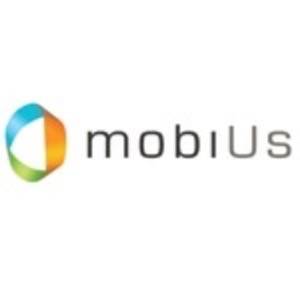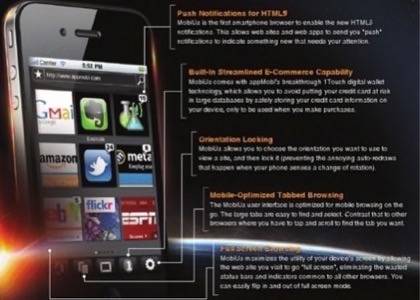HTML5 development company appMobi is releasing a new browser today called MobiUs that will give mobile Web apps the same type of functionality that now is currently only enjoyed by native apps for platforms like iOS and Android. AppMobi thinks of MobiUs as the replacement for Flash in mobile – it renders mobile websites like a Flash extension would and gives developers device access in ways previously unavailable to in HTML5.

MobiUs is technically a mobile browser. That is not the way appMobi thinks it will be used though. The company expects it to be function more like a browser extension. Like Flash, users will be prompted to download it once and from then it will just run in on the device. According to appMobi CTO Sam Abadir, MobiUs, “is the Flash killer now as opposed to five years from now.”
HTML5 Now
HTML5 holds a lot of promise for mobile Web developers. It is still not easy to develop for and many functions, like device access to the camera and accelerometer, have been missing. MobiUs can provide those functions by using the appMobi XDK and APIs from PhoneGap.
“MobiUS accelerates the timeline for HTML5,” said Abadir. “DirectCanvas is like Flash for mobile.”
DirectCanvas is a rendering engine that works much like the Standard Canvas without making calls to unnecessary to functions that things mobile Web games do not use, like hot spot mapping and creating indexes. It is the DirectCanvas aspect of MobiUs that makes appMobi confident that it can create a market for mobile Web games that function as well as native counterparts but do not have to live within the Apple App Store or Android Market. AppMobi thinks that MobiUs can open up a big market for HTML5-based Facebook games that run in the mobile browser.

MobiUs utilizes HTML5 offline caching for so Web apps will load instantly, regardless of connectivity. It can provide push notifications, which are important for developers monetization and marketing efforts.
Abadir said that appMobi expects MobiUs to accelerate HTML5 rendering by up 15 times. Developers can add MobiUs by utilizing the appMobi XDK, the PhoneGap APIs and adding the MobiUS HTML tag into the code of mobile Web apps.
Creating A Web App Store
AppMobi is hoping to accelerate the notion of the mobile Web as its own marketplace for applications. The idea is to escape the “walled gardens” of the App Store, Android Market and other native application stores. One of the problems for HTML5 mobile Web developers though is that monetizing apps is more difficult than it is for the platforms that have payment systems tied to them.
AppMobi uses its 1Touch platform to emulate the same type of payment process that users are familiar with between Amazon, Apple and the Android Market.
“MobiUs is kind of a small technology with a huge impact to create Web apps that don’t go through the app store that are truly on par with native,” Abadir said.
The idea is to create what many people expected Facebook to create with a centralized store for HTML5 mobile Web applications through its so-called Project Spartan. AppMobi has not hit up its entire cadre of mobile developers but will have several featured apps upon rollout. It remains to be seen if users will flock to mobile Web apps as opposed to those from the native platforms. What is the incentive to the user? The advantage to the developer is clear with the ability to cut out the 30% cut that Apple takes.
MobiUs is available for iOS as of Oct. 31 and appMobi expects the Android version to be ready by early 2012.
Developers: Is MobiUs a game changer? Is this what the HTML5 developer ecosystem has been looking for? Let us know in the comments.

















